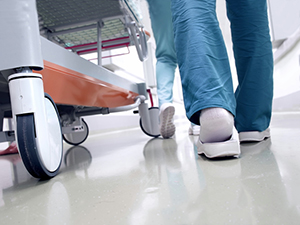
A recent interview by Infection Control Today takes a closer look at a recent study examining the connection between hospital beds and increased Clostridioides difficile (C. difficile, also know as C. diff) infections.
Researchers of the study, published online by Cambridge University Press in December 2023, set out to determine if staying in a hospital bed that previously held a patient with C. difficile would increase the risk of the same infection for the new patient.
According to the U.S. Centers for Disease Control and Prevention (CDC), C. difficile is a bacterium that causes diarrhea and colitis (an inflammation of the colon). When the disease is transferred to a patient in a hospital, it’s referred to as hospital-onset C. difficile infection (HO-CDI).
The report concluded that residing in a hospital bed or even the room that previously had a patient with C. difficile increases the risk of HO-CDI. Researchers advised that increased attention to cleaning and disinfecting in the healthcare environment could aid in reducing HO-CDI.
In the Infection Control Today interview, Lucy S. Witt, MD and the lead author of the study, said that when interacting with patients, healthcare and environmental services (EVS) workers should focus on keeping hands clean during all interactions with patients, as well as the surfaces in their rooms. She added that it’s important to fully understand the difference between a sterile and nonsterile site, as well as what’s an “in-between site” and what’s a dirty site.
Witt continued that workers need to make sure they wash their hands, use hand sanitiser, and use gloves and gowns appropriately.
Click here to review the complete study. To learn more about ways to clean to prevent C. difficile, see The Best Cleaning Methods for C. difficile/C. auris.
This article first appeared Cleaning & Maintenance Management (CMM).
Comment below to have your say on this story.
If you have a news story or tip-off, get in touch at editor@incleanmag.com.au
Sign up to INCLEAN’s newsletter.




